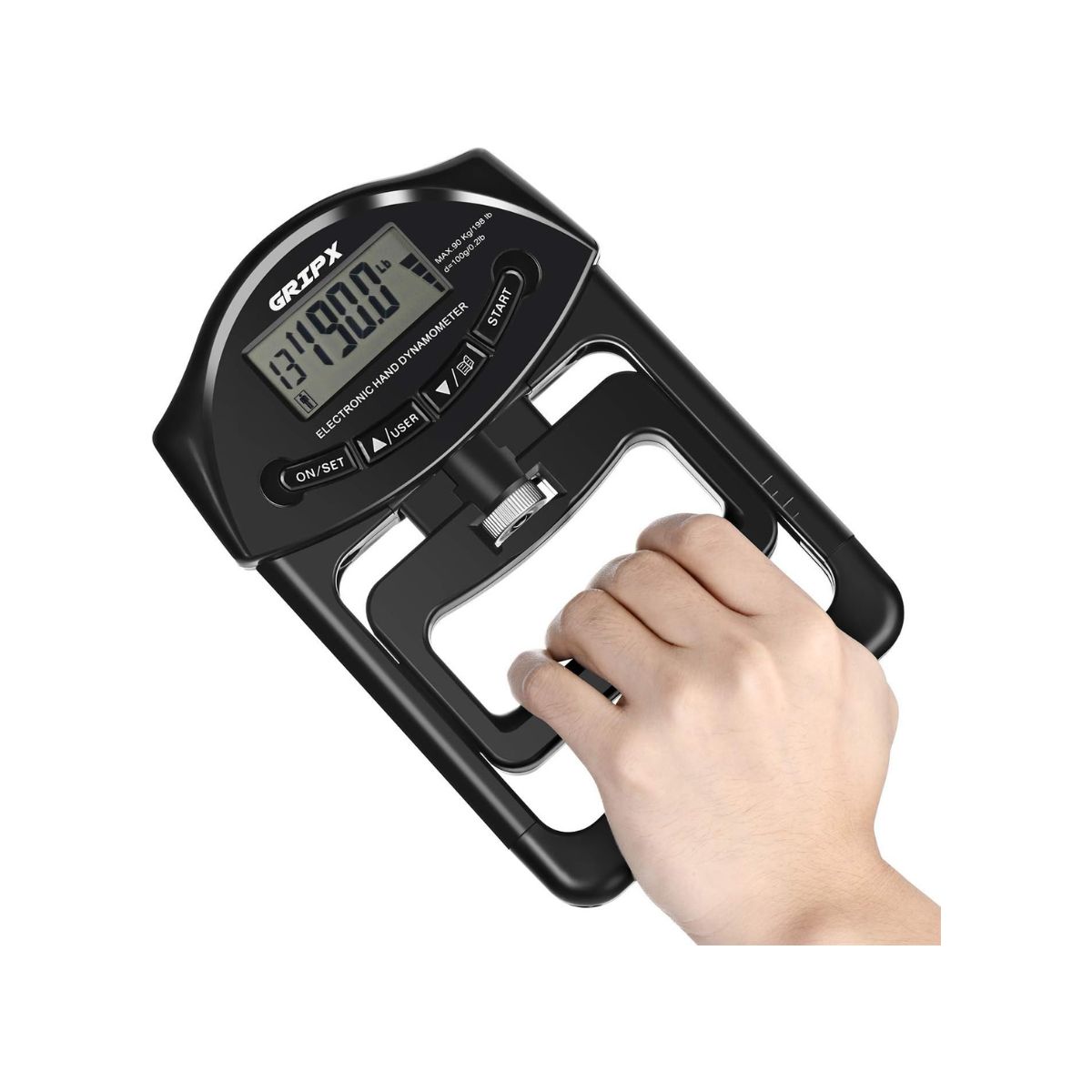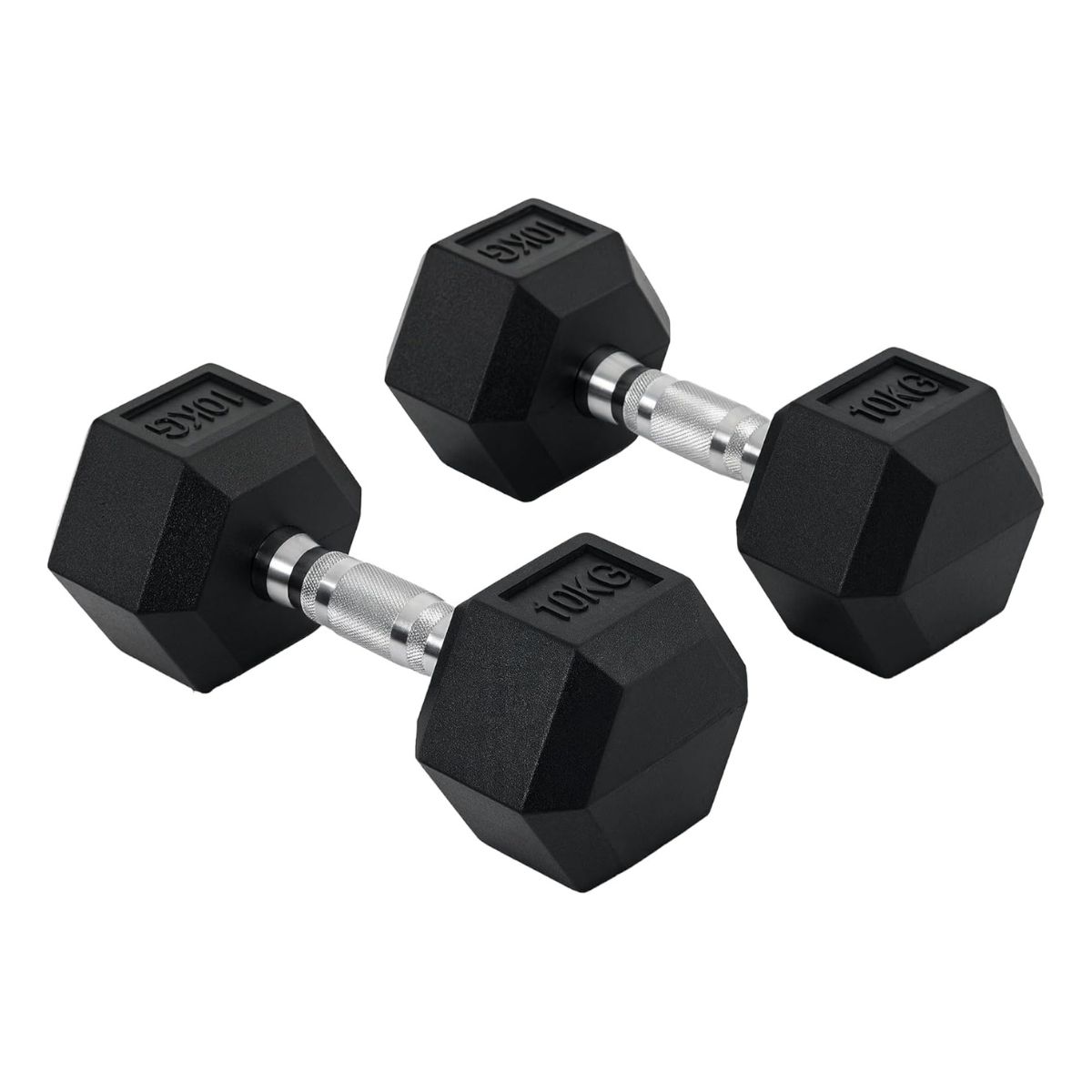You All Know That Maintaining Muscle Is Essential for Wellbeing – Now, Experts Reckon It's the Key to Longevity
The most overlooked organ in your body? You can flex it.


Ever heard a friend talk about their musclespan and wondered what on earth they were referring to?
The newly trending term has been hotly debated in longevity circles for a while now, but let us explain. If our lifespan were a cake, our healthspan would be the batter and musclespan the baking soda, aka the key ingredient helping said batter to rise.
First coined by Dr Gabrielle Lyon, the premise is simple: “Musclespan captures the idea that our muscles have their own longevity, which we can either protect or allow to fade,” explains Dr Gowland.
Still not clear? Let us expand. The longer we stay healthy, the longer we’re likely to live. And muscle plays a bigger role in that than you might have thought. In fact, a growing body of research has linked low skeletal muscle mass to higher all-cause mortality, particularly in older adults. “Healthy muscles are not just about movement, but also about our overall metabolism and protection against disease,” says Dr Max Gowland, biochemist and founder of supplement brand Prime Fifty.
So yes, building strong muscles isn’t just about how heavy you can lift. Research shows that maintaining muscle mass improves insulin sensitivity and glucose metabolism, with one 2014 study finding it to protect against osteoporosis and another 2022 paper concluding it reduces the risk of falls and fractures as we age. In other words, muscle is a multitasker, protecting our internal systems whilst keeping us mobile, balanced, and strong.
And for women, muscle health becomes even more important as we age, with statistics showing that from our thirties onwards, we lose up to 8% of our muscle mass per decade. This decline speeds up during menopause, when a drop in oestrogen accelerates muscle loss, making us more vulnerable to everything from injury to chronic illness.
The upside? Unlike some aspects of ageing, musclespan is something we can influence through our diet and lifestyle. Pretty exciting, right?
Celebrity news, beauty, fashion advice, and fascinating features, delivered straight to your inbox!
To get started on harnessing the health of your muscles, read on. We’ve got a complete doctor-led guide to musclespan, from what it is, to why it matters, how you can measure it and crucially, what you can do to improve it. And if healthy ageing is on your mind, take a scroll through our guides to the best longevity workouts, blue zone living, and the autumn rituals to boost your health this winter.
Everyone's Talking About Musclespan - But Can It Really Tell You How Long You'll Live?
What is musclespan?
If lifespan is about how long you live, and healthspan is about how long you live in good health, then musclespan is the “length of time your skeletal muscles remain strong, functional, and metabolically healthy throughout your life,” says Dr Suzanne Wylie, GP and medical adviser for IQdoctor.
Dr Wylie explains that while musclespan isn’t yet a formal medical measurement, the science behind it isn’t new. “Researchers have been studying how muscle changes with age, diet, and exercise for decades, as well as the role hormones like oestrogen and testosterone play in maintaining muscle mass and function,” she explains. “What is new is how all of this is being reframed in the world of longevity medicine, where muscle is increasingly recognised as a central pillar of long-term health.”
@drgabriellelyon If you don’t have time for your health, you sure won’t have time for sickness. We talk about lifespan and healthspan, but the real game-changer? MUSCLESPAN. 💪 Musclespan = the length of time you live with healthy skeletal muscle—and it starts before birth. It’s not just about lifting weights later in life; it’s about setting the foundation early. Kids should move, train, and build strength from a young age. The earlier, the better. More muscle = more strength, more resilience, more life. Drop a 💪 in the comments if you're building your musclespan for the long haul.
♬ Lo-fi hip hop/stylish/chill(1364257) - Jasper Lab
Why does musclespan matter?
As we’re learning, maintaining muscle is about far more than what you can lift at the gym; it’s an essential component in extending a healthy life.
“The role of skeletal muscle extends far beyond movement,” says Dr Wylie. “It’s a key metabolic and endocrine organ that helps regulate blood sugar, body composition, energy expenditure, mobility, balance, and recovery from illness or injury.”
Put simply, muscle is constantly working behind the scenes, supporting everything from how we process food to how well we bounce back after illness. “Research has consistently shown that people with greater muscle mass and strength tend to have lower risks of falls, frailty, and even premature death,” Dr Wylie explains. “From a GP’s perspective, preserving muscle is one of the most practical and effective strategies for improving both healthspan and lifespan.”
It’s not just older adults who need to pay attention, either. “We often see muscle loss beginning in our early 30s, and dropping each decade, accelerating over the age of 50,” says Dr Martin Thornton, Chief Medical Officer at Bluecrest Wellness. “This decline is recognised as a big contributor to things like falls, metabolic disease and reduced quality of life in later years. That’s why you need to think of your musclespan as far more than a marker of your fitness; it’s a long-term health insurance that you’ll thank yourself for later in life.”
Muscle also supports our resilience in less obvious ways, impacting our stress response, hormone balance, and immune defence. “When muscles are strong, the body handles stress more effectively, recovers faster from illness, and maintains a higher quality of life,” says Dr Gowland. “Extending our musclespan therefore extends our independence and vitality, and becomes one of the cornerstones of healthy longevity.”
What does the research say?
As mentioned, whilst the word musclespan might be new, the science behind it isn’t. Sarcopenia (the gradual loss of muscle mass and strength that happens with age) is a recognised medical condition and one of the key reasons researchers have been paying closer attention to muscle’s role in long-term health.
“Studies of athletes, older adults, and clinical populations all confirm that preserving muscle mass and function dramatically improves health outcomes,” says Dr Gowland, who points to a meta‑analysis of older adults with sarcopenia, which found that exercise interventions (particularly strength training) significantly improved grip strength, knee extension strength, walking speed and functional mobility compared to non‑exercise controls.
“Regular strength training improves insulin sensitivity, lowers stress hormones like cortisol, and boosts growth hormone and testosterone,” says Dr Gowland. “It also increases bone density, supports joint stability, improves balance, and reduces the risk of falls, chronic disease, and even cancer.”
And according to Dr Thornton, the field is still growing. “Musclespan is more than a passing trend and is only gaining research as time goes on.” One of the most promising shifts, he says, is the attention science is giving to prevention over cure. “It’s up to us to have an impact on our musclespan,” he explains, “which is why a lot of research focuses on preventing the loss of musclespan through nutrition, strength training, and balancing hormones.”
How can I measure my musclespan?
Unlike blood pressure or cholesterol, musclespan isn’t something you can measure with a quick, clear-cut test (at least, not yet). But that doesn’t mean you can’t get a good idea of your muscle health, or spot if it needs some extra attention.
“We can assess muscle health in several ways,” explains Dr Wylie. “Common measurements include grip strength, chair-stand tests, and walking speed, all of which are simple but reliable indicators of future health.”
Dr Gowland points out that everyday signs can also tell you a lot. “Even noticing how easily you manage stairs or carrying shopping gives clues about your muscle status,” he says.
For a more detailed assessment, scans like DEXA (dual-energy X-ray absorptiometry) or bioelectrical impedance analysis (BIA) can estimate lean muscle mass. “In some research settings, MRI or CT scans are also used for a more precise look,” adds Dr Wylie. “But in routine healthcare, functional tests combined with an assessment of diet, activity levels, and comorbidities usually provide a good picture.”
There also isn’t a definitive "musclespan score" yet, but that’s likely to change. “Researchers are developing combined measures that bring together muscle strength, endurance and metabolic health to better capture the idea,” says Dr Gowland. “In time, musclespan might become a recognised health metric, like blood pressure or cholesterol.”
Until then, the best way to keep track is to tune into your own strength, mobility and stamina, and note how these change over time. If the weights you lift feel lighter, stairs don’t tire you as much, or everyday movement feels easier, that’s a good sign your musclespan is on track.
How can I improve my musclespan?
The first step in protecting your muscle health is to understand what harms it. “Ageing, physical inactivity, chronic disease, poor nutrition (particularly low protein intake), vitamin D deficiency, and certain medications such as corticosteroids can all threaten muscle health,” explains Dr Wylie. “For women, hormonal changes during and after the menopause can accelerate muscle loss whilst premature ovarian insufficiency, thyroid problems, or prolonged periods of low energy availability can also contribute.”
As a GP, Dr Wylie also assesses her patients’ lifestyle factors, such as a lack of strength training and dieting, which she says can disproportionately affect women’s muscle health due to entrenched social norms.
But here’s the good news: improving musclespan is absolutely achievable. The key, Dr Thornton stresses, is to focus on small, consistent habits that are easy to maintain as you age.
1. Prioritise strength training
“Regular resistance training, such as weightlifting, bodyweight exercises, or resistance bands, is the most effective intervention for improving musclespan,” says Dr Wylie.
If you’re a beginner, start with “a couple of sessions a week, using body weight or resistance bands,” adds Dr Thornton.
2. Focus on protein
“Ideally your intake will be spaced evenly across meals,” says Dr Thornton, who looks for around 1 to 1.2 grams per kilogram of body weight daily for most adults.
If you’re unsure about your protein intake, Dr Wylie says it can be helpful to book a dietary review with a registered dietitian.
3. Keep an eye on hormone health
“This is especially important around menopause, where nutrition and strength training play a key role in offsetting muscle loss,” explains Dr Thornton. “You know your body best, so listen to what feels normal and don’t hesitate to ask for help.”
Dr Wylie agrees, adding that “discussing hormone replacement therapy (HRT) with your GP, as part of a broader plan for bone and muscle health can be worthwhile at this time.”
4. Understand your health data
“Tracking body composition, blood markers, and disease progression can all help you to spot changes early and adapt your approach,” Dr Thornton concludes.
Ultimately, says Dr Gowland, “improving musclespan is about creating an environment where movement, nourishment, and recovery work in harmony to build a stronger and more resilient body for the years ahead.”
@drgabriellelyon Aging doesn’t happen in a smooth, gradual line. Aging comes in catabolic crises. Illness, injury, hospitalization, even a week in bed… these are the moments when muscle vanishes fastest. Older adults can lose 2–5 pounds of muscle in just 10 days of bed rest, and most never fully recover. That’s why building and maintaining muscle isn’t about vanity, it’s about preparation. Muscle is your reserve tank for life’s inevitable setbacks. The stronger you are going in, the better you bounce back. Aging is inevitable. Weakness is a choice. Strength is the buffer. PMID: 33703945
♬ original sound - kfreshmusic
Shop MC UK musclespan essentials now:
Can musclespan predict how long I'll live?
The short answer is not entirely. Your lifespan is determined by a combination of genetic and lifestyle factors, of which your muscle mass is just one part. But it is more important than you may have previously realised.
“Studies show that people who maintain more lean muscle mass as they age tend to live longer, recover faster from illness and remain independent for longer,” says Dr Martin Thornton, Chief Medical Officer at Bluecrest Wellness.
Biochemist and founder of supplement brand Prime Fifty, Dr Max Gowland, agrees. “When muscles are strong, the body handles stress more effectively, recovers faster from illness, and maintains a higher quality of life. Extending our muscle span therefore extends our independence and vitality, and becomes one of the cornerstones of healthy longevity.”

A former heptathlete, Ashleigh is a freelance journalist, specialising in women’s health, wellbeing and lifestyle, with words in Stylist, Cosmopolitan, Glamour and Marie Claire. She’s also the Co-Founder of Sunnie Runners, an inclusive London based run club.


